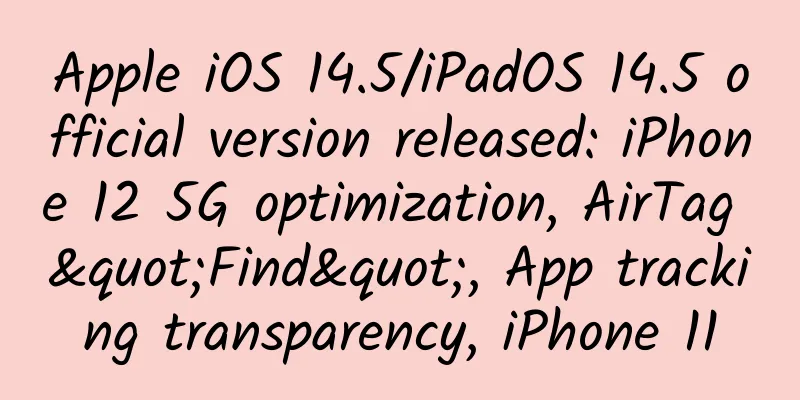Farewell BlackBerry: Why the former mobile phone giant repeated Nokia's mistakes

|
This time I really have to say goodbye to BlackBerry and the classic full keyboard. Canadian mobile phone manufacturer Blackberry recently announced that it will end its smartphone business and the company will shift its focus to software in the future. BlackBerry CEO John Chen said the company plans to stop all internal hardware research and development and outsource it to partners such as Foxconn, which can reduce capital expenditures and obtain higher returns on investment. This should be the promise that Chen Shouzong is most reluctant to fulfill during his three years in charge of BlackBerry. He had previously stated that if BlackBerry phones are no longer profitable, he will abandon the business. Competition in the smartphone industry is indeed too fierce. It is a huge challenge for any mobile phone manufacturer to maintain revenue and profits in a market with slowing growth. The biggest reason why BlackBerry gave up its mobile phone business is its declining performance. In the just-ended fiscal year 2016, BlackBerry's total revenue was only $2.17 billion, a 34% drop from $3.3 billion in fiscal 2015. It is hard for outsiders to imagine that five years ago, it was still an international giant with annual revenue of nearly $20 billion. On the other hand, BlackBerry has been losing money continuously. In fiscal 2014, BlackBerry’s net loss hit a record of $5.9 billion. Since then, it has continued to lose money. Except for the fourth quarter of fiscal 2015, when it made a profit of $28 million, it has been losing money for nearly five fiscal quarters. The main culprit for the poor performance is the sharp decline in the hardware business. Data shows that BlackBerry sold only 600,000 phones in the fourth quarter of fiscal year 2016. This volume is far from the 5 million units per year that BlackBerry had previously set, and is even less than one-tenth of Huawei's monthly sales. lesson We can find many reasons why BlackBerry phones are not selling well: lack of applications, sticking to full keyboards, high prices and too few sales channels. However, the decline of a mobile phone brand is most fundamentally due to problems with its own products. In recent years, BlackBerry phones have completely failed to keep up with the changes of the times. Since Chen Shouzong took over BlackBerry, most of the hardware products he led have focused on full keyboards, such as PassPort and Priv. The only full-touch screen phones, Z10, Z30 and Z3, were almost all planned products during the era of Heins (former BlackBerry CEO). Chen Shouzong did not launch a new full-touch screen flagship model to cater to mainstream users. In fact, ever since the iPhone applied full touch screen technology to mobile phones, BlackBerry has been ignoring the group of people who are gradually liking full touch screens. The success of BlackBerry's keyboard phones in the early years was based on the technology and cost of the small screen era at that time. The smaller screen allowed enough space for the full keyboard, and the comfort and speed of input made BlackBerry phones a communication tool. However, with the rise of full-touch screen phones, the number of mobile phone applications is rich and powerful, which has won the favor of consumers. BlackBerry believes that if it puts too much attention and resources into consumers and app stores like Apple , it will lose its advantage in core corporate customers. It even believes that the iPhone cannot be easily typed. But BlackBerry overlooked one point: the success of the iPhone is not just the change of full touch screen, but more importantly the application scenarios behind it. With the subsequent development of smart phones, the boundary between business phones and personal phones has become increasingly blurred, and full keyboards are no longer equivalent to business phones as before. BlackBerry, belatedly realizing the situation, began to develop the BlackBerry 10 (BB10) operating system, hoping to enhance the appeal of its devices. However, the system was repeatedly delayed, missing the golden age of smartphone development, and faced the embarrassing situation of a lack of applications after its late arrival. At that time, Google 's Android had already taken advantage of the situation and formed the two major smartphone camps with Apple's iOS. BlackBerry BB10 operating system The obsession with full keyboards came from BlackBerry's confidence in the enterprise market, so they believed they could compete with Apple and Google. Because at that time, BBM (BlackBerry Messenger) was considered the killer application of BlackBerry. Without "cool" products and novel technologies, and with the emergence of iPhone and Google Android, which have a large number of applications, BlackBerry phones began to be ignored by corporate users. In 2013, the market share of corporate users had fallen to less than 1%. Recently, BlackBerry opened some of the premium features of BBM that were previously charged to ordinary users. This reminded people that BlackBerry actually had a very leading instant messaging software. Unfortunately, just like China Mobile's view on Fetion, BlackBerry has always only regarded BBM as a communication tool for BlackBerry users, and ignored the huge user value behind it. Today, Facebook , WhatsApp, and Twitter have already gained absolute dominance, and up-and-coming players such as Instagram are also gradually becoming more mature. Where will BBM go? BlackBerry, which had experienced a single product, continuous losses, user loss, and subsequent massive layoffs and the departure of its founders, finally collapsed at this moment. BlackBerry released its first Android smartphone, the Priv, this year. It is still unknown whether this phone can save BlackBerry. However, according to Nielsen's survey of US operator users, the number of BlackBerry users is still pitifully small, with only 0.7% using phones equipped with the BlackBerry system. pay tribute BlackBerry once occupied nearly 50% of the US market, with the highest annual revenue approaching 20 billion US dollars. Even more brilliantly, it almost took over the high-end market of US politics and business, from President Obama to the Department of Defense, the Senate, and the National Security Agency. Such a once powerful mobile phone must have its outstanding features, mainly security and BBM. If it is not safe, or even fails to reach the ultra-high level of security, I believe that American politicians would not dare to use it. The security of BlackBerry is inseparable from its independently built servers and communication mechanisms. When transmitting BlackBerry encrypted emails and messages, the information transmission uses AES-256 bit or 3DES encryption, first transmitted to the BlackBerry server, and then the BlackBerry server transmits it to the recipient. The operator only acts as a pipeline, and can only see the encrypted information data, but cannot see the content of the information. AES-256 or 3DES is a highly secure encryption algorithm that is difficult to crack. The key requires the hardware information of the sender, server, and receiver. Each BlackBerry device and server uses a different key to encrypt and transmit emails. The high-strength encryption algorithm and hardware-based key make this encryption mechanism very difficult to crack. Under the current system, even BlackBerry itself cannot provide the government with a way to monitor all BlackBerry emails. It is said that the AES-256-bit or 3DES encryption algorithm has never been successfully cracked. A story that BlackBerry often talks about is "911". It is said that due to the sudden incident, a large number of calls surged across the United States. For a time, the telecommunications network was blocked and mobile phones could not make normal calls. Only BlackBerry users could rely on their independently set up servers to continue to maintain normal communication. It is said that the then US President Bush relied on BlackBerry phones to command from the White House. BBM instant messaging service is a major success of BlackBerry. Before the advent of IM tools such as Whatsapp and WeChat, in the 2G era when data traffic was extremely expensive and the Internet speed was unbearably slow, BBM was indeed a fascinating social tool. It was online 24 hours a day, with real-time message push, dedicated BlackBerry server channel and powerful group functions. The huge number of BBM users until now was accumulated from that time. According to relevant data, during its heyday, the business brought BlackBerry 800 million Canadian dollars in revenue, 90% of which was profit. At its peak, BBM had 113 million registered users and about 85 million monthly active users. The biggest difference of BBM is the first is identity authentication, users can control the contact list, and the second is that emails can be processed immediately. BBM places great emphasis on message delivery and read management. Anyone who has used BBM knows that you can see when the message you sent is read by the other party. In addition, BBM allows free calls without going through the operator network. BBM comes to Android and iPhone In the early days, BBM only existed on BlackBerry's own operating system. After the iPhone swept the smartphone market, BlackBerry still insisted on supporting BBM only on its own system, which is why WhatsApp took over the cross-platform instant messaging market. Until last year, BlackBerry launched BBM on iOS and Android to achieve cross-platform. In fact, because of the good user experience, many former BlackBerry users have been looking forward to BBM having iOS and Android versions. Not long after the Android version of BBM was released, the number of downloads exceeded 100 million. People prefer to use BlackBerry for office email and chat due to its unique services such as security and BBM. Since business culture is deeply rooted in BlackBerry, owning a BlackBerry can enhance your image as a businessman. As a result, we saw the emergence of classic models such as 9000, 9930, 9900, 8830, etc. Unfortunately, these are all in the past. What we can do now is to pay tribute to the classics. future "It is almost impossible for BlackBerry to return to the mobile phone market, but if it can apply its nearly 50,000 patents and data security advantages to the Internet and the Internet of Things, such as government, finance, and legal departments, as well as telemedicine and driverless cars, it will return as the king in new areas." This was the "pharmacy" that Cheng Shouzong had previously prescribed to save BlackBerry. Now outsourcing the mobile phone business is the first step. Its latest model DTEK50 has been handed over to TCL's factory in Europe for OEM. Although the hardware performance has declined significantly, in the past fiscal year 2016, the total revenue of its software and service business reached 526 million US dollars, exceeding the expected target of 500 million US dollars. This shows that the software and service business has stabilized and will become the key business of BlackBerry in the future. Daniel Chan, an analyst at investment bank TD Securities, believes that by completely and quickly exiting the hardware business, BlackBerry will have the potential to transform itself into an enterprise software company with annual revenue of $1.4 billion and a profit margin of 33%, and R&D spending will be cut significantly. Abandoning the hardware business will put BlackBerry in a better position than it is now. Chen Shouzong also predicted that BlackBerry's software business will achieve $17.6 billion in revenue by 2019. To achieve this goal, BlackBerry's trump card may be QNX, which can be combined with BlackBerry's security services to form a new business core. QNX is a Unix-like embedded operating system owned by BlackBerry. The BB 10 mobile phone system that BlackBerry once tried to promote is a transplant of QNX. Currently, QNX's share in vehicle-mounted systems is close to 80%. Mainstream car manufacturers such as BMW, Chrysler, Ford, GM, Jaguar, Mercedes-Benz, Porsche, Toyota, Volkswagen, and Hyundai are all supporters of this system. Due to its outstanding performance in security and stability, BlackBerry QNX also provides operating systems, software development tools and engineering technology services for electrical appliances, medical equipment and control systems, and has a large market share. QNX even appears in some control equipment in nuclear power plants. Although BlackBerry has given up its mobile phone business, the Internet of Things (IoT) that extends from the in-vehicle system and security needs hold great value. According to relevant reports, the IoT market will reach $70 billion by 2025, and the penetration rate of the Internet of Vehicles is gradually increasing, pushing cars towards driverless driving. This is undoubtedly a new golden opportunity for BlackBerry. Saying goodbye is actually to welcome a better future. As a winner of Toutiao's Qingyun Plan and Baijiahao's Bai+ Plan, the 2019 Baidu Digital Author of the Year, the Baijiahao's Most Popular Author in the Technology Field, the 2019 Sogou Technology and Culture Author, and the 2021 Baijiahao Quarterly Influential Creator, he has won many awards, including the 2013 Sohu Best Industry Media Person, the 2015 China New Media Entrepreneurship Competition Beijing Third Place, the 2015 Guangmang Experience Award, the 2015 China New Media Entrepreneurship Competition Finals Third Place, and the 2018 Baidu Dynamic Annual Powerful Celebrity. |
>>: Google self-driving cars crashed three times last month, but careless drivers are more dangerous
Recommend
Can the dream of establishing a TV cinema chain by joining hands with Alibaba Gehua come true?
As the news that the American streaming video ser...
Mother's Day marketing strategy!
Let’s talk about how to do topic marketing on Mot...
Comparison: Real-world costs of electric and internal combustion vehicles report
Anderson Economic Group in the United States rele...
A brief discussion on APP operation and promotion: How to place advertisements accurately?
Preface: As of the end of March this year, accord...
User retention: How to improve user stickiness?
Do you remember the last time you vowed to stick ...
Sohan Ashtanga Intensive Practice
Introduction to Sohan Ashtanga Advanced Practice ...
What is the secondary directory of a website and how to set it up?
A few days ago, a friend asked me an SEO question...
It is rumored that Apple may adopt a paid bidding model in the App Store, which will be fun!
Apple has assembled a secret team to explore chan...
Weekly Science Talk丨Can a small catalyst help improve air quality?
In August, the Ministry of Ecology and Environmen...
Starting from 4 dimensions, let information flow ads accurately reach users
In 2011, Tiwtter launched a new advertising forma...
[In-depth Revelation] Analysis of Internet Financial Product Operation Strategies!
The main product model of Internet finance is rel...
Please save these tips for achieving mobile app user growth!
When traffic and users in various industries are ...
The formula of ternary lithium battery materials is undergoing a revolution, less cobalt is becoming the trend, and cobalt-free is still a distant prospect
Recently, Japanese battery supplier Panasonic ann...
APP promotion and operation: How to improve user traffic conversion
Traffic is the object of operations . How to quic...
I feel uncomfortable if I don’t order a cup of milk tea! Why are we addicted to food?
During the day at work, I always feel uncomfortab...









